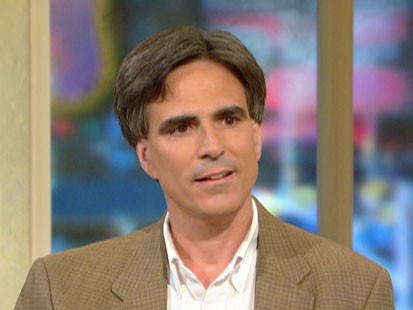The planning committee for
SIGCSE 2008 are busy, well, planning, so I will be brief -- kudos to
Paul Tymann for the Roommate Database to match attendees and share expenses (and thus increase attendance) -- more kudos to
Tammy VanDeGrift for the excellent
Hotel, Shopping and Restaurant Map where you can interact and plan your conference.
Congrats also to my co-chair
Susan Rodger, whose educational tool
JFLAP was celebrated as a
finalist for the Premier Award at the recent
Frontiers in Education Conference. Susan has the slides and a demo at her
JFLAP site.
More "shout-outs" to
Jeliot 3, also a finalist for the
Premier Award at FIE 2007; clearly computing is producing useful tools for engineering education.
Below is the text from our invitation sent to the SIGCSE listserv today.
++
We are pleased to provide you with information about the SIGCSE 2008
conference to be held in Portland, Oregon: March 12-15, 2008.
http://www.cs.duke.edu/sigcse08Ten highlights here on information about SIGCSE 2008 including
how it may be different than years past and why you should head to
SIGCSE in the northwest this year!
More details on these items are below.
1) Call for Posters and Bofs: Deadline November 5
2) Registration rates - same as 2007!
3) Conference hotel - free metro ride from convention center
4) Events in the Conference Hotel
5) Three Keynote Speakers: Mayer, Lazowska and SIGCSE Award Winner
6) Saving trees - CD instead of paper proceedings
7) Come early for the pre-conference events
8) Stay late for a workshop! Portland TrailBlazers! Cirque du Soleil!
9) Find a roommate - available now
10) Portland is great! No sales tax, wine country, nice restaurants!
Here are more details.
1) Call for Posters and Bofs: Deadline November 5
There is still a chance to submit. See details at:
http://www.cs.duke.edu/sigcse08/authors.html2) Registration rates - same as 2007!
We've managed to keep the registration rates the same as 2007.
Registration rates are posted on the attendees page:
http://www.cs.duke.edu/sigcse08/attendees.htmlRegistration will be available in November.
3) Conference hotel - free metro ride from convention center
The conference hotel, the Hilton Portland and Executive Towers,
will be in downtown Portland. The Oregon Convention Center
is across the river. There is a free metro (called MAX) that you can
take one block from the Hilton and it drops you off right in front
of the convention center.
Two other hotels, Inn at the Convention Center and the Red Lion,
will be available near the convention center.
Hotel registration should be available soon on the conference site.
4) Events in the conference hotel
The Birds of a Feather and the Thursday night SIGCSE Reception will
be held at the Conference Hotel, The Portland Hilton and Executive
Towers. All other events will be held at the Oregon Convention Center.
5) Three Keynote Speakers: Mayer, Lazowska and SIGCSE Award Winner
We have three keynote speakers lined up. The SIGCSE Award Winner (to
be determined) will speak on Thursday. Marissa Mayer, Vice President
of Search Products and User Experience, at Google will speak on Friday
morning. Ed Lazowska, the Bill and Melinda Gates Chair in Computer
Science and Engineering at the University of Washington will speak at
the Saturday Luncheon.
6) Saving trees - CD instead of paper proceedings
We will be saving trees and issuing CD proceedings instead of paper.
You can pre-order a paper proceedings for $35. Please register
early to guarantee availability of paper, as we will limit the printing
of paper proceedings.
7) Come early for the pre-conference events
There will be a Doctoral Consortium and Roundtable for Department
Chairs during the day on the Wednesday before SIGCSE. There may be other
pre-conference events scheduled on this date.
And as usual, there will be SIGCSE Wednesday night workshops starting
at 7pm.
8) Stay late for a workshop! Portland TrailBlazers! Cirque du Soleil!
Saturday workshops will be scheduled from 4-7pm.
Saturday night you could watch the Portland Trailblazers play at 7pm (you
can walk across the street to the arena after attending a workshop!) or
catch a Cirque du Soleil show.
9) Find a roommate - available now
If you would like to find a roommate, Paul Tymann has graciously
provided the Roommate Database again this year. Please check it out
now on the attendees page.
http://www.cs.duke.edu/sigcse08/attendees.html10) Portland is great! No sales tax, wine country, nice restaurants!
That's right, stay and shop, there is no sales tax in Oregon. Also
check out a winery and try some of the many nice restaurants. We have
included a google map on the attendees page that shows the conference
hotels, the convention center and many recommended restaurants.
Plus there's
Powell's Books, including
Powell's Technical Books, 33 NW Park, Portland - (503) 228-4651.
And we have ordered sunny weather!
Susan Rodger and J.D. Dougherty
SIGCSE 2008 Symposium Chairs
rodger@cs.duke.edu,
jd@cs.haverford.edu
 In this vein, Owen Astrachan of Duke University has found a benefit race || run || fun walk on the Sunday morning right after the conference concludes. Known as the Shamrock Run, it provides another way to see Portland, to exercise and to support a noble cause.
In this vein, Owen Astrachan of Duke University has found a benefit race || run || fun walk on the Sunday morning right after the conference concludes. Known as the Shamrock Run, it provides another way to see Portland, to exercise and to support a noble cause.

 Well, just when I thought I had enough to keep abreast about in computing education -- fortunately, the first public appearance of the ACM EPC* will be a panel discussion at
Well, just when I thought I had enough to keep abreast about in computing education -- fortunately, the first public appearance of the ACM EPC* will be a panel discussion at 
 The second new ACM Fellow connected (directly) to
The second new ACM Fellow connected (directly) to  Finally
Finally
 The
The  And this is important work --
And this is important work -- 









